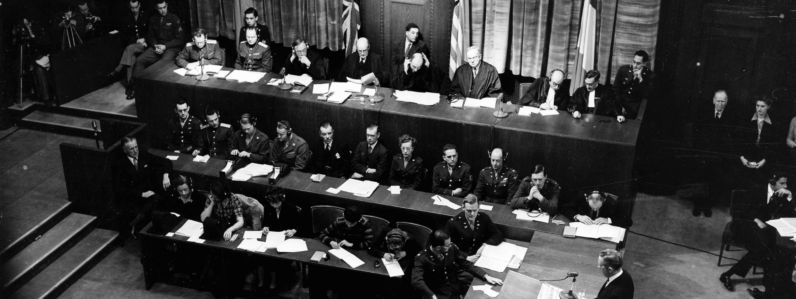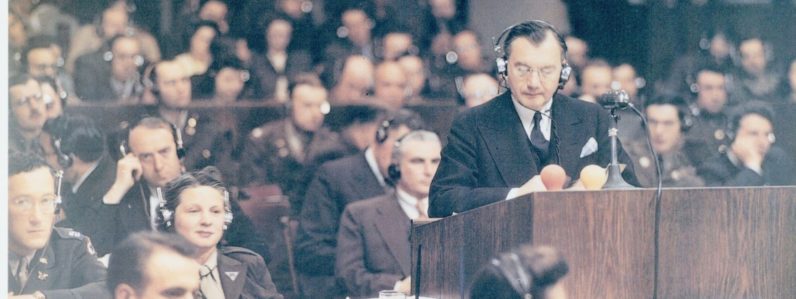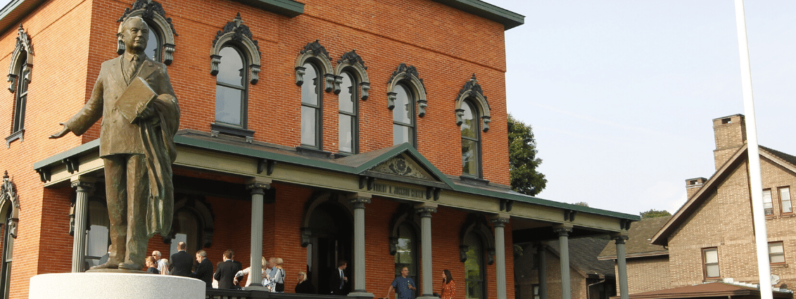“When I am forgotten, as I shall be
And sleep in dull cold marble….
…
Say, I taught thee.”
Shakespeare, Henry VIII
Wolsey, who “trod the ways of glory, and sounded all the depth and shoals of honor,’ offered Cromwell as reason for his remembrance that “I taught thee.” It is appropriate, in an age when education is of foremost importance, that we former students gather in memorial to those whose claim to remembrance is “I taught thee.”
The recent passing of Miss Mary R. Willard sets her apart in our thoughts today as one who upheld the best traditions of the teaching profession. There are men and women in many walks of life who acknowledge proudly that their inspiration to good reading, or to writing, and to living on a higher plane of culture, came from this earnest and modest woman. None owes her a greater debt or would make more prompt acknowledgment than I.
A correct and full understanding of the written word is the threshold of knowledge, and ability to write simple direct English is the beginning of power. Miss Willard dedicated herself to teaching these basic subjects and it was a labor of love. A noble thought worthily expressed, a dramatic event graphically described, a knotty problem lucidly stated, were to her marks of the craftsman and, in a student, foretellers of a career. It is in large degree due to her leadership and teaching that a standard of public speaking, journalism and writing prevails in this city above that usual to one of our size.
I have not the perspective to analyze teaching methods and can only record those impressions by which her work was distinguished to my untrained and, let me admit, highly biased, observation.
Mary Willard belonged peculiarly to that period before the war, when we were less distracted by mechanical speech transmission and less confined to mechanical thought, when our work was measured by excellence rather than quantity, when individuality was prized and cultivated and standardization was an emblem of inferiority. Strongly individual herself, she sought and encouraged independence, poise and indifference to social pressure which in this day so largely shapes conduct and governs opinion.
No teacher of my time so completely identified herself with the interests and hopes and worries and pleasures of her students. I think she would have stood by us in almost any quarrel with faculty or Board of Education. She had no belief that we were simply walking bundles of original sin. She accepted youth as wholesome, its errors due to lack of guidance more than lack of right intent.
No teacher mingled with her students with such absence of formality. Each was known to her, as to his classmates, by a Christian name or often a “nick name.” A fine womanhood and a keenness of intellect gave her that natural dignity which lesser people seek through formalities and conventions. She met us in unrestrained friendship, sympathy and equality. Leading into the enchanted realms of fine literature, or exploring bypaths of English history, she made student life rich, dramatic and full of romance.
“Men should be taught as if you taught them not,
And things unknown, proposed as things forgot.”
Such was Pope’s precept and Miss Willard’s example. One hardly realized she was teaching. Rules rested lightly upon her—even rules of discipline. She sacrificed no friendship over a split infinitive and lost no hope in a youth because he had gathered a vocabulary of slang. She could search an hour for a synonym and get an exact shading of meaning—that was the language of art. And she could characterize a pompous and platitudinous study hall speech as “just blather”—that was the language of life. Her appreciation of the fine and beautiful in life did not close her mind to the goodness and strength of the simple every day life.
Another feature of her work might arouse controversy. We are accustomed to believe that public education, universal, free and compulsory, is a great boon to mankind, and to suggest any element of imperfection in it is heresy.
The fact is, however, that compulsory education forces into public school many, almost a majority, whose only reason for being there is that they are of school age. Without background, without aspiration, without capacity, they drag and clog the machine. They hold back those of more fortunate antecedents and greater zeal to learn. The nitwit, because of his numbers, sets the pace of the class.
Not in Mary Willard’s class. The nitwit got the course prescribed by the Regents. It was all he could bear. There were no platitudes about impartiality—she had favorites. They were chosen for no social or financial reasons. She favored the student of industry and understanding, the pace of her class was set by the quick, not the dead, the bright, not the dull. There were endless bypaths of reading, or of composition, for those who sought it—and she had unlimited time to help in activities related to literature, the drama or speaking for those who would give their time and effort to match hers. The Avon Club was parent to the Players Club and through it many young women received inspiration to spend out-of-school hours in study of literature and dramatic art instead of in frivolous high school social activities. Many men in public life today came through school strengthened in the resolve to be somebody because they found in Mary Willard a superior teacher who respected individuality and encouraged development of the style, the strength and the talent one had rather than trying to iron him out into a conventionally flat graduate. To those who feel the poverty of a life of sales talk by day and small talk by night, she threw open the treasure houses of accumulated scholarship of ages and bid us enrich ourselves there, limited in what we carry away only by the effort we give to the taking.
This appreciation would be incomplete if it failed to mention her working in bringing to the young community a knowledge of Shakespeare. At home with all the classics and the great efforts of English literature, the tragedies, histories and comedies of the Bard of Avon were to her, as to most who know them, the vary meridian of the art. The wealth of imagery and aptitude of phrase from the great craftsman of all time, who in the language of Thomas Bailey Aldrich “left nothing unsaid,” lent to her converse a richness and breadth that made her as teacher or companion a constant inspiration. She invested life with Shakespearean color—the children of his imagination were her playmates and intimates. In the newly-discovered wisdom of local oratory, she heard the platitudes of Polonius—she saw youth like Hamlet, always trying to make a choice between courses, “to be or not to be.” Her Romeos and Juliets are fathers and mothers now. Ladies Macbeth are still goading husbands to ruinous feats of ambition that o’er vaults itself. Lears still sting under the disappointment of the ungrateful child. Shylocks still seek their pound of flesh. But the Falstaffs are statesmen now. Those whom Mary Willard taught to view life’s tragedies and comedies through the eyes of Shakespeare will leave at curtain fall, as she herself left, satisfied that the world makes a good show and that the price is not too much.
The gratitude and affection of that long procession of students who filed through the classes of Mary Willard goes forth to her as a member of
“The choir invisible
of those immortal dead who live again
In minds made better by their presence.”






